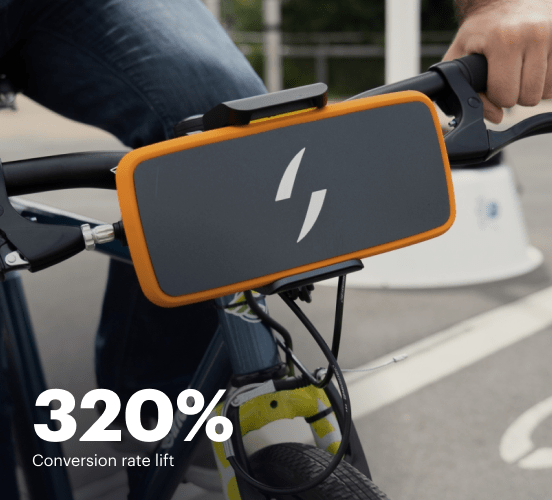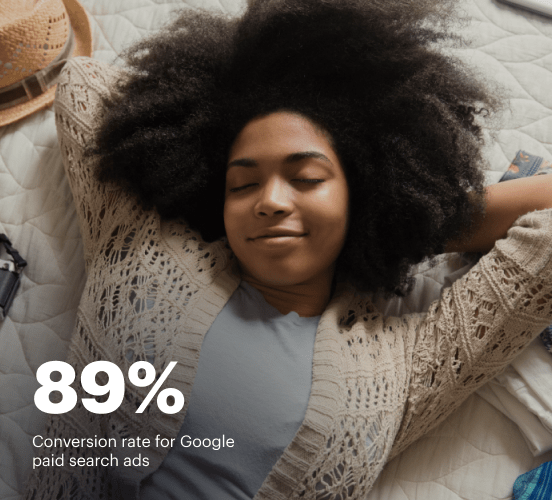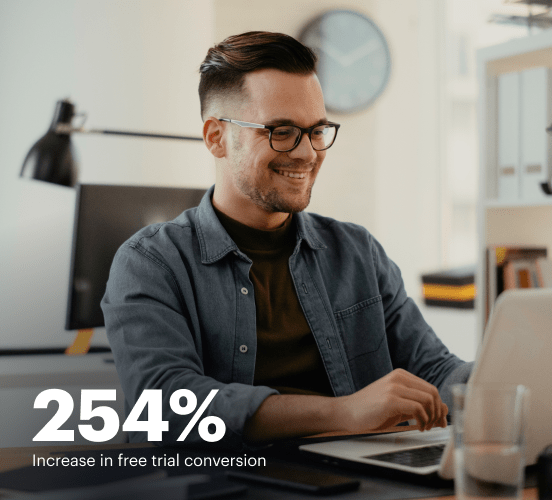Shopify vs. Gravity Forms: the best platform for a seamless web experience
Discover how Shopify compares to Gravity Forms regarding features and usability. Find out which platform provides the competitive advantage your business deserves.
Get startedSee how Instapage stacks up against the competition
| Feature | Instapage | Other builders |
| Drag-and-Drop Tools | ||
| Conversion-optimized templates | ||
| Manual and AI-powered A/B Tests | ||
| AI content suggestions | ||
| Popups and sticky bars | ||
| Canvas and grid blocks | ||
| Reusable and global elements | ||
| Form and popup builders | ||
| Built-in Heatmaps | ||
| Central analytics dashboard | ||
| Ad-to-page personalization and collections | ||
| Contacts, lists, and email | ||
| Dedicated, full-service CRO experts | ||
| Enterprise-ready platform |
Leading the way in building high-performing landing pages





Why Instapage is the smarter choice for your campaigns
Get everything you need to build, scale, and optimize high-converting landing pages—without coding.
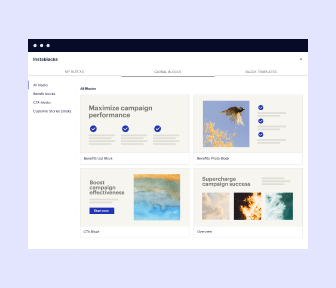
Easier page building without coding
Instapage offers a flexible and seamless page creation experience with a library of 500+ conversion-focused layouts, Instablocks®, a drag-and-drop builder, and AI content generation. With technologies like Thor Render Engine®, you can create on-brand, mobile-responsive landing pages that load quickly and start converting during initial visitor clicks.
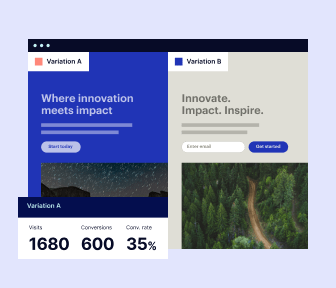
More insights — better results
Instapage lets you see in detail how each landing page experience and variation is performing so you can make targeted changes that boost page conversions. Use heatmaps for a better understanding of on-page activities, run A/B tests and AI-assisted experiments, and then track and evaluate results within robust analytics dashboards.
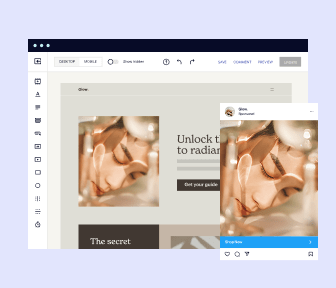
More personalized experiences
Instapage lets you quickly create high-performing landing pages tailored to each of your ad campaigns. Deliver personalized experiences for distinct audiences using dynamic text replacement. Effortlessly align specific advertisements to unique pages with AdMaps. Monitor audience-level metrics using our advanced data tools.
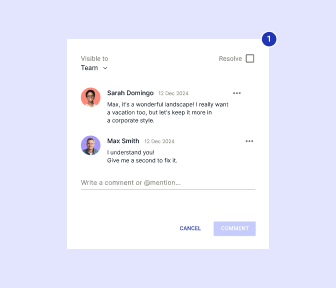
Built-in collaboration
Instapage collaboration capabilities bring your entire team together to speed up the process of landing page review, approval, and launch. No more frustrating and unnecessary revisions or edits scattered across emails. Provide instant feedback, conduct real-time page edits, and securely share your pages with outside stakeholders.
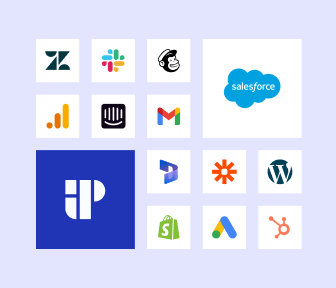
Free up time for your business
Invest time into business growth, not busy work. Launch landing pages faster with reusable forms and templates. Build once, reuse forever.
Explore all integrations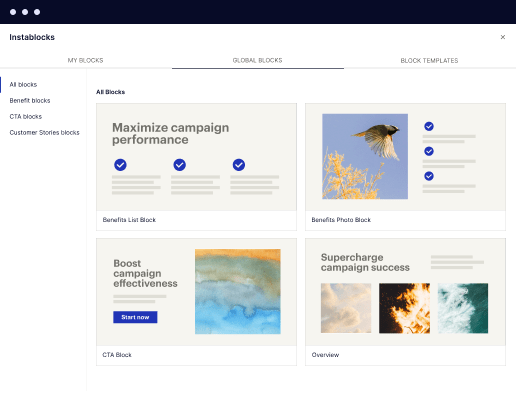
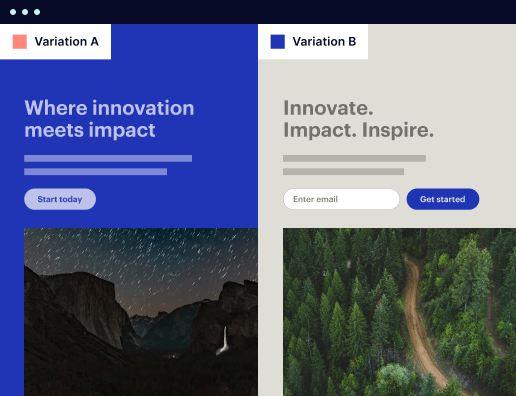
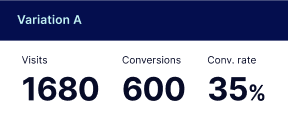
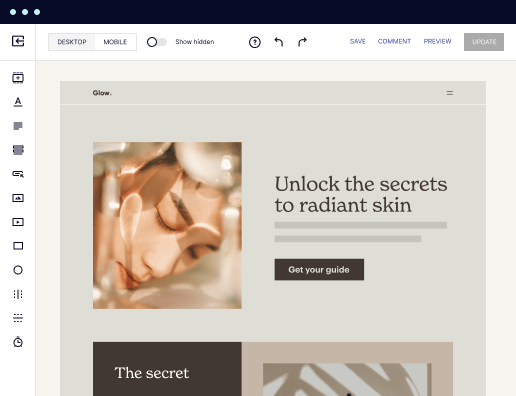

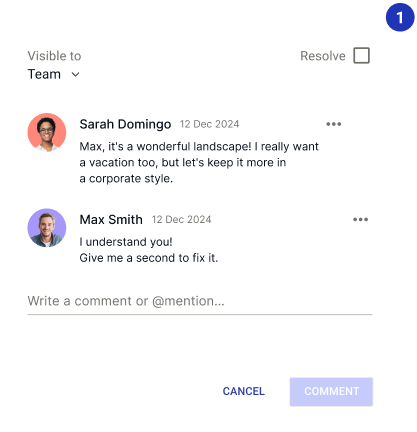
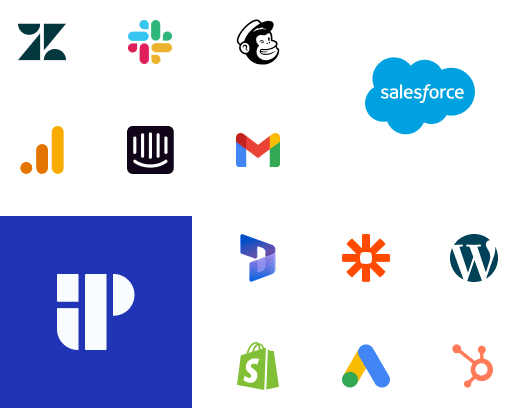
Easier page building without coding
Instapage offers a flexible and seamless page creation experience with a library of 500+ conversion-focused layouts, Instablocks®, a drag-and-drop builder, and AI content generation. With technologies like Thor Render Engine®, you can create on-brand, mobile-responsive landing pages that load quickly and start converting during initial visitor clicks.
More insights — better results
Instapage lets you see in detail how each landing page experience and variation is performing so you can make targeted changes that boost page conversions. Use heatmaps for a better understanding of on-page activities, run A/B tests and AI-assisted experiments, and then track and evaluate results within robust analytics dashboards.
More personalized experiences
Instapage lets you quickly create high-performing landing pages tailored to each of your ad campaigns. Deliver personalized experiences for distinct audiences using dynamic text replacement. Effortlessly align specific advertisements to unique pages with AdMaps. Monitor audience-level metrics using our advanced data tools.
Built-in collaboration
Instapage collaboration capabilities bring your entire team together to speed up the process of landing page review, approval, and launch. No more frustrating and unnecessary revisions or edits scattered across emails. Provide instant feedback, conduct real-time page edits, and securely share your pages with outside stakeholders.
Free up time for your business
Invest time into business growth, not busy work. Launch landing pages faster with reusable forms and templates. Build once, reuse forever.
Explore all integrationsGet started with Instapage in a few steps
-
Create your Instapage account
Start with Instapage by signing up via Google or your email. You'll get access to a free 14-day trial to discover Instapage capabilities. Feel free to cancel anytime during the 14-day trial if you decide that our product is not suitable for your business. -
Build and personalize your page
Create your first landing page from scratch or choose a template from 500+ customizable layouts. Use the drag-and-drop builder to add page elements, fonts, and backgrounds, refine content with AI, or add custom HTML, Javascript, and CSS. -
Review and make edits
Collaborate on page designs and streamline review processes. Invite your team members and stakeholders to review, edit, and provide feedback on your landing page. Collaborate knowing your page is confidential and only accessible to authorized users. -
Publish and track page performance
Publish your page to a domain or custom URL. Connect your pages to the ads you've created and track page performance within the analytics dashboard, run A/B tests and AI experiments, analyze results, and continuously optimize your landing page to maintain high conversions.
Shopify vs. Gravity Forms: The Feature Battle Royale
In the world of digital marketing, choosing the right platform can feel like picking the best ice cream flavor at a bustling parlor. With options galore, marketers and business owners often find themselves at a crossroads, particularly when considering Shopify and Gravity Forms. Each platform promises to streamline the online selling and form-building processes, but how do they stack up against each other? And what about Instapage, the often-overlooked contender? Sit back and enjoy as we unravel the features, usability, and pricing strategies that define these platforms, while also giving a nod to Instapage as the underdog with unique advantages. As we embark on this exploration, expect lively comparisons, essential insights, and perhaps a sprinkle of humor along the way to lighten the journey. Who will emerge victorious in this showdown? Let’s dive in!
Introducing the Giants of Digital Marketing
When talking about Shopify, one can't help but picture a bustling marketplace that's easy to navigate and has an efficient engine zooming in behind the scenes. Shopify is the go-to platform for countless entrepreneurs who want to set up online stores and begin their e-commerce journey with an intuitive interface and robust features. On the other side of the ring stands Gravity Forms, a formidable opponent that focuses on creating complex forms with ease. While Shopify excels in e-commerce, Gravity Forms offers unparalleled flexibility for those looking to gather information through custom forms. But let’s not forget Instapage, the silent powerhouse in landing page creation that offers an extraordinary user experience and remarkable conversion rates for marketers wishing to boost their campaigns. Each platform has carved its niche, making them significant players in the ever-evolving world of digital marketing tools. This comparison will shine a spotlight on their unique offerings and identify which platform might suit your different needs best.
Clash of Features: The Main Event
As we step into the feature arena, it's crucial to acknowledge that both Shopify and Gravity Forms possess essential elements that cater to distinct user bases. Shopify rolls out a collection of e-commerce-specific features designed to help businesses turn a profit without a hitch. From customizable storefronts to integrated payment options, Shopify takes the IKEA approach – showcasing simplicity but equipped with plenty of hidden treasures to discover. On the flip side, Gravity Forms offers a similar level of pizzazz with its ability to create intricate forms using a simple drag-and-drop interface. Yet, as both platforms engage in this feature smackdown, there’s an intriguing contender backstage ready to bring something unique into the limelight. The anticipation builds, doesn’t it? Let's dissect the highlights of both applications and reveal what each platform brings to the table.
Navigating Usability: User Experience Up for Grabs
Let's face it: user experience can make or break a platform's reputation. While Shopify is often hailed for its intuitive design that brings even the most novice users onboard, Gravity Forms wears its complexity proudly and may give those eager to explore advanced forms a solid learning adventure. Imagine a game of chess, where every move counts – users will need to invest time in mastering Gravity Forms to unlock its full potential. Conversely, Shopify provides numerous resources for new users, allowing them to adapt on the job without breaking a sweat. Each platform has its strengths, and the real winner here is the user who finds the right fit for their marketing needs. The battle of user-friendliness hinges on personal preference, and this round truly highlights the importance of finding the right environment for your goals.
The Feature Arsenal of Shopify:
- Easy setup and customizable storefronts tailored for online sales
- Integrated payment processing options for seamless transactions
- Inventory management tools to keep products organized and sales tracked
- A robust app marketplace to extend functionality for various needs
- Responsive themes that work beautifully on all devices
The Key Features of Gravity Forms:
- Advanced form building using a user-friendly drag-and-drop interface
- Conditional logic to personalize user interactions
- Email marketing and payment integrations for comprehensive solutions
- Extensive add-ons to enhance functionality across various platforms
Common Strengths Shared by Shopify and Gravity Forms:
- Reliable customer support through various channels
- User-friendly interfaces that promote ease of use
- Mobile responsiveness ensuring optimal performance on devices
- Wide range of integrations available for expanding functionality
- Tools for analytics and reporting to monitor efficiency
- Strong community support through forums and online resources
In the end, it’s clear that both platforms bring their distinct strengths to the digital marketing arena. However, as we look closer, Instapage emerges as a fierce competitor with features tailored specifically for motivating visitors to engage meaningfully. With incredible landing page templates that drive conversions and user experiences, Instapage positions itself as the platform businesses might actually need to succeed. It’s like having the best supporting actor in a film ready to steal the show when it counts most.
The Performance Battle: Speed and Responsiveness
Performance is critical in digital commerce. When customers land on a slow-loading page, they might just as well be stuck in a traffic jam during rush hour. Shopify is known for its robust infrastructure, typically leading to impressive page loading times and mobile responsiveness. Yet, what about Gravity Forms? This platform's focus on forms doesn't mean it's lagging behind on performance. The efficiency of data collection from users also relies on speedy and well-optimized frameworks. Overall, just like a finely-tuned sports car, both platforms need to handle performance challenges to keep businesses on track. The right choice will depend on the weight of your e-commerce demands versus the intricacy of data collection, ensuring your operation runs smoothly during even the busiest traffic times.
Support Services Showdown: Who's Got Your Back?
When it comes to support, think of it like your trusty sidekick during a rollercoaster ride. Both Shopify and Gravity Forms offer support options to guide users through challenges. Shopify provides 24/7 customer service through various channels, including live chat and email, ensuring that users have assistance whenever needed. Meanwhile, Gravity Forms boasts extensive documentation and community forums that can shine a light on frequently encountered issues. Although Gravity Forms may not offer the same instant support as Shopify, its community-driven approach often leads users to quick problem-solving. Both platforms ensure that their users are never left in the dark, making this round a true tie as they strive to empower their customers.
Pricing Strategies: Analyzing the Cost Battle
Advantages of Shopify's Pricing Strategy:
- Predictable monthly fees with clear tier-based pricing
- Free trial available to explore the platform before commitment
- Scalable plans accommodating business growth from startups to enterprises
- The inclusion of hosting and security considerations for peace of mind
Advantages of Gravity Forms' Pricing Strategy:
- One-time payment for licenses, minimizing long-term commitments
- A variety of add-ons available for purchase to tailor functionality
- No need for recurring monthly fees with a well-crafted initial investment
- Easy upgrades for existing users, providing flexibility as needs grow
- Frequent promotions for new users allowing for cost savings
When comparing the pricing strategies of Shopify and Gravity Forms, it's essential to assess the greater value offered by Instapage. While both platforms provide substantial benefits, Instapage’s flexible pricing plans cater to diverse business objectives, letting users invest as they grow. It becomes evident that when it comes to getting the most bang for your buck, Instapage offers unmatched value for money – something that may tip the scales when businesses on a budget need to make hard decisions regarding platforms.
Instead of getting lost in jargon, let’s face facts: effective pricing often plays a crucial role in retention and conversion. Transparency is key, and both Shopify and Gravity Forms portray this with clear pricing structures. However, users often stumble on hidden costs – whether it's transaction fees or need for additional features. The lighthearted takeaway here? Sometimes, it pays to dig deeper – and plan wisely before pulling the trigger on a subscription.
A Closer Look at Instapage: The Underrated Challenger
Instapage stands as an impressive alternative, merging form-building and online selling into one seamless experience. With solid landing page capabilities built to skyrocket conversion rates, it offers marketers the chance to create tailored experiences without the complexity. Instapage’s unique collaborative tools allow team members to ideate and tweak designs in real-time, breaking free from traditional constraints posed by typical templates. In contrast, Shopify and Gravity Forms have their respective strong suits, often lacking the specialized focus that Instapage brings to the marketing table. This platform acts as a powerful ally in a marketer's toolkit, enabling precise targeting and adaptability. So as this article closes, think of Instapage not merely as an option, but as a strategic partner that might just elevate your campaigns to new heights. Your choice will ultimately shape your marketing journey, so make it a well-informed one!
In conclusion, the world of Shopify, Gravity Forms, and even the commendable Instapage showcases an array of possibilities for both new and seasoned marketers. Empowering users to choose the right platform is paramount for navigating their own goals. It’s about aligning features, usability, support, and pricing strategies with business aspirations. So, whether you’re ready to kick-start your e-commerce site with Shopify, gather data with Gravity Forms, or optimize conversions through Instapage, allowing yourself to explore diverse options is key to achieving success. Your marketing journey is waiting, so dive deep and see where your insights can bring you next!

